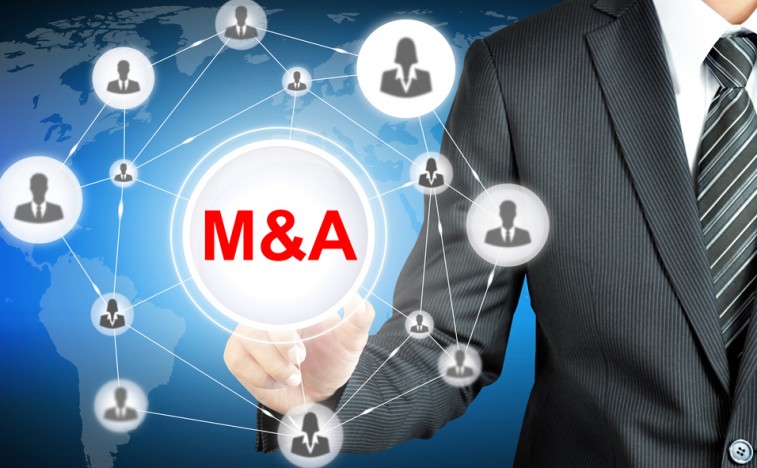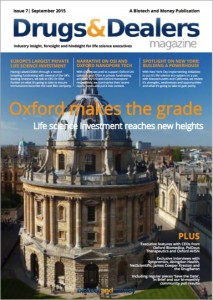6 things we learned from Manuel llobet, CEO of Allergy Therapeutics
Biotech and Money recently had the opportunity to speak to Manuel Llobet, CEO of Allergy Therapeutics. With several exciting new products in their pipeline, Allergy Therapeutics are a model of endurance, having weathered a ‘perfect storm’ of both economic downturn and FDA restrictions. But with a focus on core, revenue-generating ventures and market ownership rather than short-term profit, Allergy Therapeutics are set to become one of the world’s major players in allergy, respiratory and dermatological health. Here we ask, what can we learn from Manuel’s leadership of such a successful company?
1. The field of allergy therapy is a rapidly changing scene
Whether through M&A, success in numerous clinical trials or simply the changing tides, the field of allergy pharmaceuticals is going big time. Numerous smaller companies are quickly conglomerating into large multinational behemoths, ready to tackle the markets of tomorrow.
“Very few companies are well placed to be global players, I would say 3 maybe 4. But this is also putting pressure on smaller local players in Europe, because the market is getting global. Ideally, we would like to do M&A with competitors, because that would bring cost synergies.”
“Very few companies are well placed to be global players, I would say 3 maybe 4. But this is also putting pressure on smaller local players in Europe, because the market is getting global. Ideally, we would like to do M&A with competitors, because that would bring cost synergies.”
2. Don’t neglect your core business
It pays to keep your fundamentals in check. Having that go-to, cash-generating technology as a reliable source of revenue is invaluable in times of recession and simple bad luck. When the FDA were on their backs and the global markets were crumbling in all directions, Allergy Therapeutics stayed afloat due to the success of their core business, allowing them to survive ‘the perfect storm’ and re-emerge looking more resilient than ever.
“In 2009 we were in a really tough situation. We had £30 million debt that we took from the RBS to finalise the clinical problem in the US, and we were losing money because we weren’t doing clinical trials, as they has been put on hold.
The consequence of all this was that the company looked for a strategic investor. And this is where I got involved in the company. We reinforced the balance sheet, paid a lot of the debt, and started the turnaround programme. We agreed with the ward and the executive team that, provided we could not move forward in the US, we should be totally focused on a revenue business model.
So during the first four years, we were totally focussed on that core, core business, ignoring the big distraction that was the US. This gave us the opportunity to be totally focussed on our portfolio and expand our European market.”
“In 2009 we were in a really tough situation. We had £30 million debt that we took from the RBS to finalise the clinical problem in the US, and we were losing money because we weren’t doing clinical trials, as they has been put on hold.
The consequence of all this was that the company looked for a strategic investor. And this is where I got involved in the company. We reinforced the balance sheet, paid a lot of the debt, and started the turnaround programme. We agreed with the ward and the executive team that, provided we could not move forward in the US, we should be totally focused on a revenue business model.
So during the first four years, we were totally focussed on that core, core business, ignoring the big distraction that was the US. This gave us the opportunity to be totally focussed on our portfolio and expand our European market.”
3. In hard times, keep your revenue up
Build on the rock, and not on the sand: nothing is worse than trying to build and expand your business when you’re in debt.
“You shouldn’t finance clinical development with debt, because if something goes wrong, you’ve got nowhere to go other than going back to your shareholders. It could pay off, but if something every goes wrong – which it can do – it puts you in a very difficult position. “
“You shouldn’t finance clinical development with debt, because if something goes wrong, you’ve got nowhere to go other than going back to your shareholders. It could pay off, but if something every goes wrong – which it can do – it puts you in a very difficult position. “
4. Good relationships – with both investors and potential M&As – are based on trust
Whether it’s persuading your investors to invest in you or persuading potential new colleagues to work with you, nothing will happen unless there is that fundamental level of trust. Allergy Therapeutics have worked hard to build their reputation and earnt that level of confidence from their peers and their supporters.
“We did a small acquisition we did in Spain in June of a company called Allepharma. We started to talk to these people 4 years ago. Many of these processes are very slow and based on confidence and trust, trusting each other, and in the end we could acquire that company with our own cash flows at a very good price.”
“We did a small acquisition we did in Spain in June of a company called Allepharma. We started to talk to these people 4 years ago. Many of these processes are very slow and based on confidence and trust, trusting each other, and in the end we could acquire that company with our own cash flows at a very good price.”
5. Play a long game – go for market share rather than immediate return
When faced with the option of slow, steady growth or a more immediate return, Allergy Therapeutics invested in their future, turning down profit and opting instead for market share. The result? They now find themselves in a prominent position to become one of the world’s key leading figures in the world of global allergy pharmaceuticals.
“We are taking 1% market share a year in our competitive markets, more or less, and we expect this will continue or accelerate. We’d prefer to take 1, 2 or 3 point market share per year rather than making 2 or 3 million more a year, at least for the time being. Then, when we get the market share we want, we will be able to increase our margins.”
“We are taking 1% market share a year in our competitive markets, more or less, and we expect this will continue or accelerate. We’d prefer to take 1, 2 or 3 point market share per year rather than making 2 or 3 million more a year, at least for the time being. Then, when we get the market share we want, we will be able to increase our margins.”
With the current portfolio we think we can keep taking one or two points’ market share a year. Ideally, by 2020, we should have 20% market share, have launched the Pollinex Quattro – our ultra-short course hay fever treatment – in the US, and have acquired 2 or 3 companies.
6. The future is bright for allergy therapeutics
With 14 successful clinical trials under their belt and several more rapidly on their way, there’s no denying the success of Allergy Therapeutics in this field. What’s more, working in allergy naturally leads on to working in other related medical areas. One way or another, expect Allergy Therapeutics to be expanding their horizons in the near future.
“But this is not a proof of concept. This is not a phase 1 or phase 2 project; this is a late stage phase 3 – almost pre-registration – of a product we’ve been commercialising in Europe for 10 years and we know doctors are happy with. In 10 years we’ve treated 200,000 patients with this product.
We are also looking at other targets related to allergy: dermatology, respiratory, diagnosis or immuno modulation for instance. All these areas are prescribed by many prescribers that we visit. The dermatologists are very related to allergy. One of the main consequences of allergy is eczema.”
“But this is not a proof of concept. This is not a phase 1 or phase 2 project; this is a late stage phase 3 – almost pre-registration – of a product we’ve been commercialising in Europe for 10 years and we know doctors are happy with. In 10 years we’ve treated 200,000 patients with this product.
We are also looking at other targets related to allergy: dermatology, respiratory, diagnosis or immuno modulation for instance. All these areas are prescribed by many prescribers that we visit. The dermatologists are very related to allergy. One of the main consequences of allergy is eczema.”
The full interview with Manuel Ilobet will be published in the upcoming Drug & Dealers edition.





Leave a comment